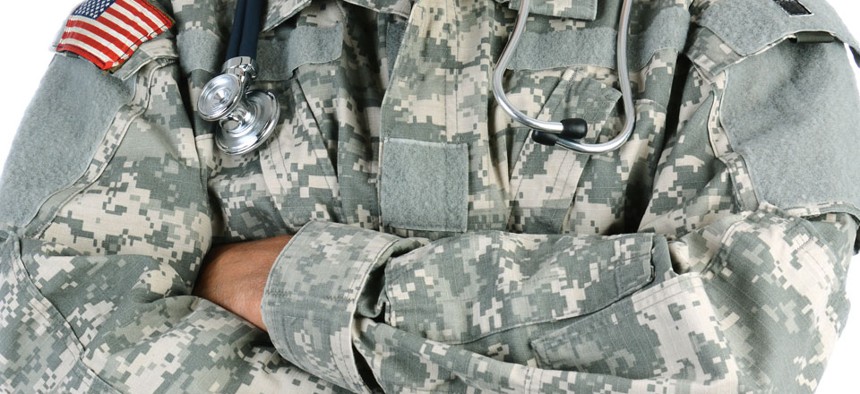
Steve Cukrov/Shutterstock.com
CBO: Increasing TRICARE Fees Could Save Government Billions
Military retirees under 65 paid 16 percent less out-of-pocket for health care in 2012 than in 1996.
The government could save billions of dollars annually over the next decade by increasing the amount military retirees and their families pay for health care, according to a new cost estimate from the Congressional Budget Office.
The nonpartisan CBO estimated that higher enrollment fees, copayments and deductibles for military retirees in TRICARE Prime and introducing minimum out-of-pocket costs for Medicare-eligibleTRICARE for Life enrollees -- the program for retirees age 65 and older -- would yield much greater savings from 2014 to 2023 than other proposed changes to the military’s health care system.
CBO estimated that other approaches to curbing the Defense Department’s ballooning health care costs could save as much as $100 million. That figure is substantially less than the potential savings that increasing retirees’ health care contributions could yield. Some of those ideas include expanding preventive health care programs, hiring more auditors to crack down on fraud and consolidating the military departments’ medical facilities.
The military’s massive health insurance program offers millions of service members, retirees and their dependents quality care at relatively low cost. That’s what the government aimed for when it created the Civilian Health and Medical Program of the Uniformed Services in 1966, now known as TRICARE. But the price of that success has been high for Uncle Sam: The $53 billion program now consumes roughly 10 percent of the Pentagon’s nonwar budget. By 2030, CBO estimates TRICARE will eat up more than 14 percent of Defense’s budget.
“In 2012, retiree families paid less than one-fifth as much for their care as civilian counterparts with employment-based insurance,” said the estimate from Carla Tighe Murray, a senior analyst in CBO’s national security division. She presented her work at the recent Western Economic Association Conference.
Military retirees enrolled in TRICARE Prime paid about $965 in annual out-of-pocket costs in 2012, compared to the $6,080 annual price tag for civilians enrolled in an HMO plan, according to Murray’s analysis.
Lawmakers have been loath to make any changes that would raise health care expenses for military retirees and their families. Congress agreed to raise TRICARE Prime annual enrollment fees for retirees in 2011 -- the first time the fees have gone up since 1995. Active-duty service members and their dependents do not pay for health care under TRICARE Prime.
House and Senate lawmakers both have rejected the Obama administration’s proposal to increase and create new TRICARE enrollment fees in their respective fiscal 2014 Defense authorization bills. The lower chamber passed its version of the legislation in June. The full Senate still needs to vote on its bill, which the Armed Services Committee reported out last month.
(Image via Steve Cukrov/Shutterstock.com)
NEXT STORY: EEOC Avoids Second Round of Furloughs







